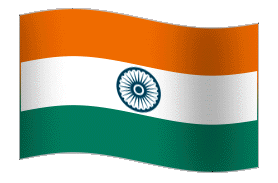BLiSc (Bachelor of Library & Information Science) is a one-year duration undergraduate course in Library Science. In BLiISc course, students are taught various aspects of library science including management, maintenance and preservation of information using sources of education as well as information technology.
Eligibility:
Every college or university has a different set of eligibility criteria that need to be fulfilled by the interested candidates. Here, we have mentioned the important eligibility criteria for the Bachelor of Library and Information Science [B.Li.Sc] course:
- The candidate must complete his graduation in any discipline from a recognized university.
- The candidates must have a minimum of 50-55% marks in his/her graduation/
- The candidates will also have to clear the admission criteria for the particular college in which they are willing to take admission
- Some of the colleges/Universities conduct their own entrance exam which must be cleared by the aspirants.
Career Scope:
Candidates after successfully completing the Bachelor’s course in Library and Information Science can opt for higher studies and pursue a Master’s degree in Library and Information Science.
There are various career opportunities for candidates who complete B.Li.Sc course successfully. Candidates who wish to pursue a job after completion of the course can find employment opportunities at news agencies, public/ private libraries, photo/ film libraries, universities and other academic institutions, foreign embassies, museums, libraries of radio stations, etc. Some of the popular job profiles for B.Li.Sc candidates include:
- Library Information Officer: A library information officer manages information to make it easily accessible to others. The professional typically works with electronic information such as online databases content management systems, digital resources and traditional library materials
- Library Assistant: A library assistant is a person who lends as well as collects books/ periodicals/ videotapes, updates patrons’ records on computer, and processes new materials such as books, software, audiovisual material, etc
- Assistant Director: An assistant director assigns tasks to staff at the circulation desk, trains new staff in library, provides reader’s advisory service for patrons, etc
- Librarian: Some of the daily responsibilities of a librarian include organizing library materials so that the books, periodicals etc are easily accessible; assembling and indexing databases of library materials; etc
- Library Specialist: A library media specialist is a professional who usually works in schools to help students and staff find materials and learn to conduct research. However, such candidates typically need to have a master’s degree in library science to work as a library specialist
- Cataloguer: A cataloguer is responsible for managing the catalogue of materials at a library
- Lecturer: Candidates interested in academics can also become a lecturer in a college or a university
- Indexer: An indexer reviews various documents and compiles indexes to make information searches easier. An indexer works with a variety of documents such as books, periodicals, manuscripts, literature, reports, websites, DVDs, audio recordings, etc
- Assistant Professor: An assistant professor provides knowledge to the students in subjects related to Library and Information Science



